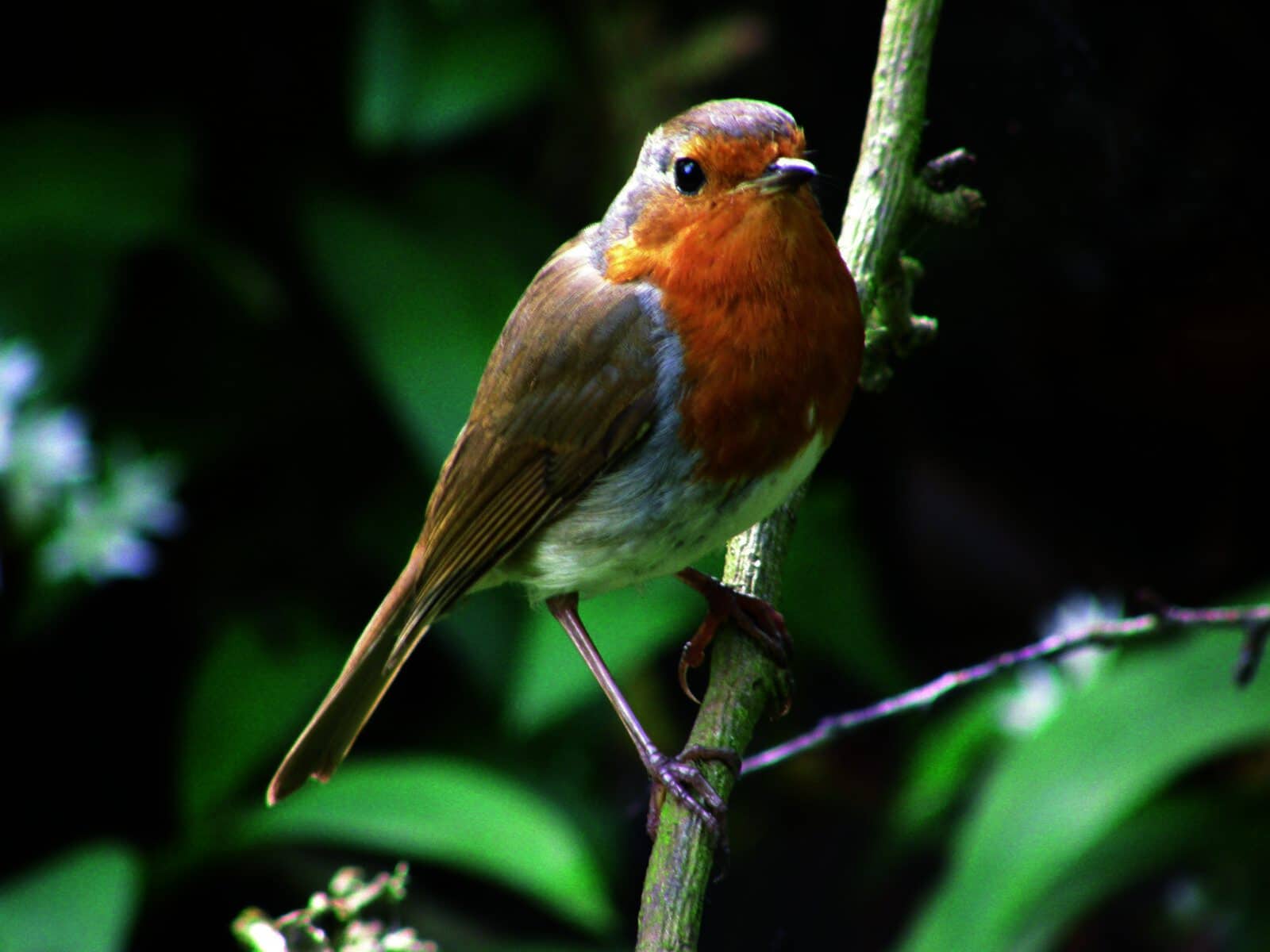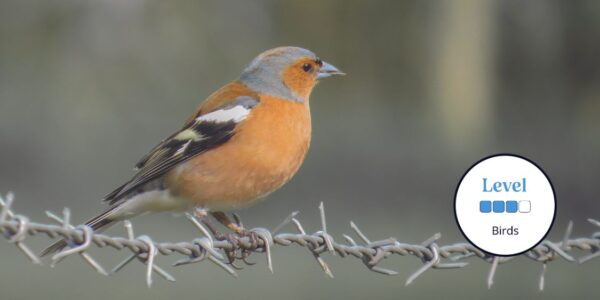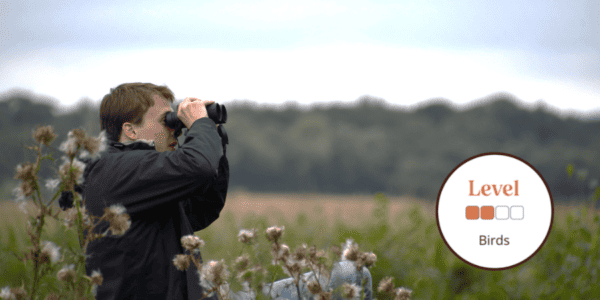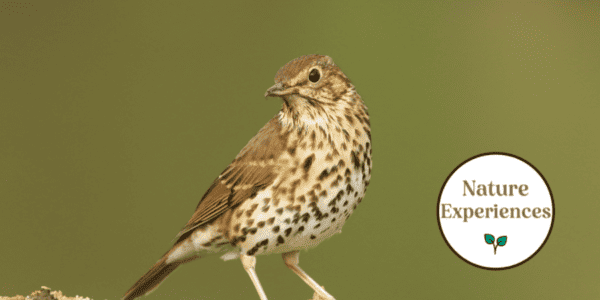This beginner online bird course is aimed at bird enthusiasts who wish to learn more about their much-loved garden visitors and want to begin to be able to identify them and understand their biology and ecology.
Birdwatching has become a hobby for many people of all ages. It allows us to connect with nature and begin to contribute to citizen science.
What is covered in this course?
- Bird Biology
- Bird Ecology
- Identifying UK Garden Birds
- Types of Bird Song
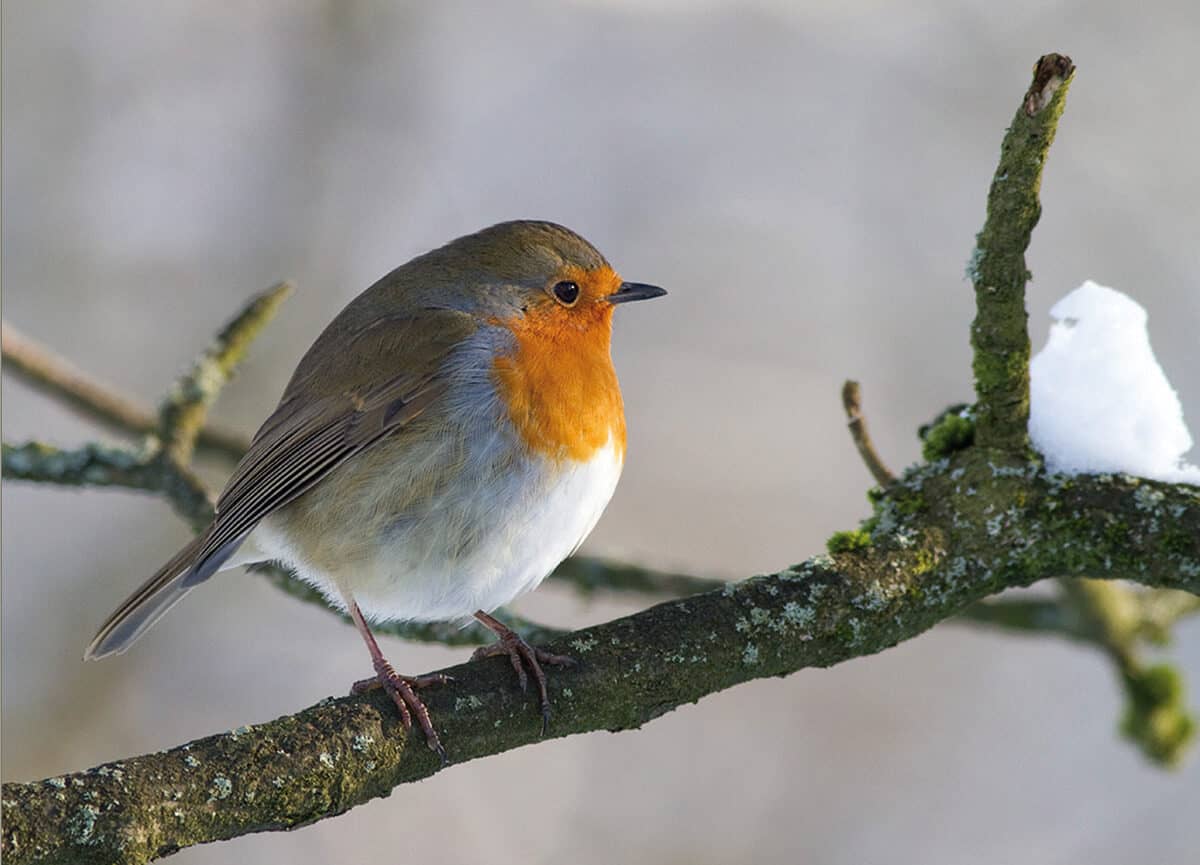
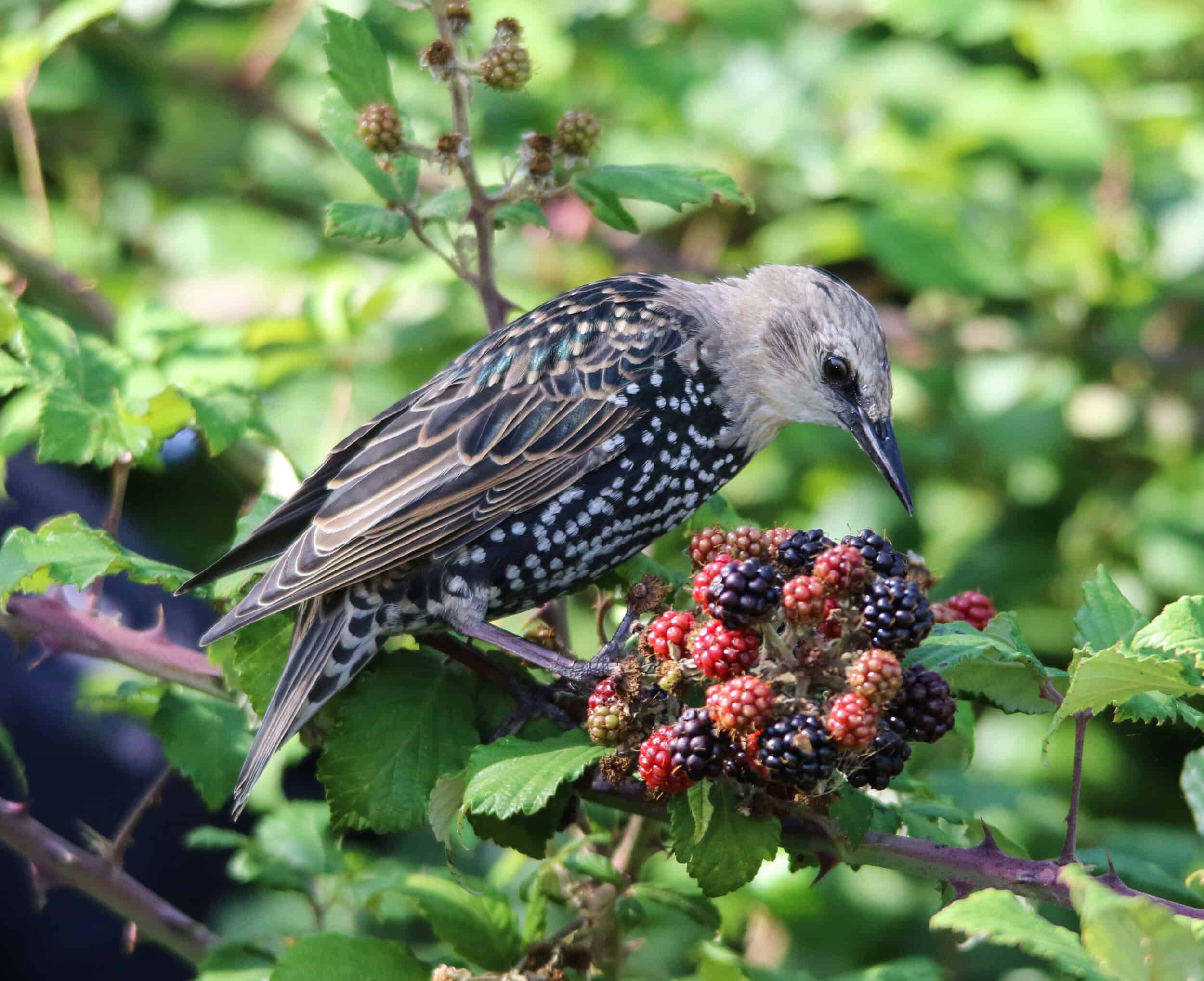
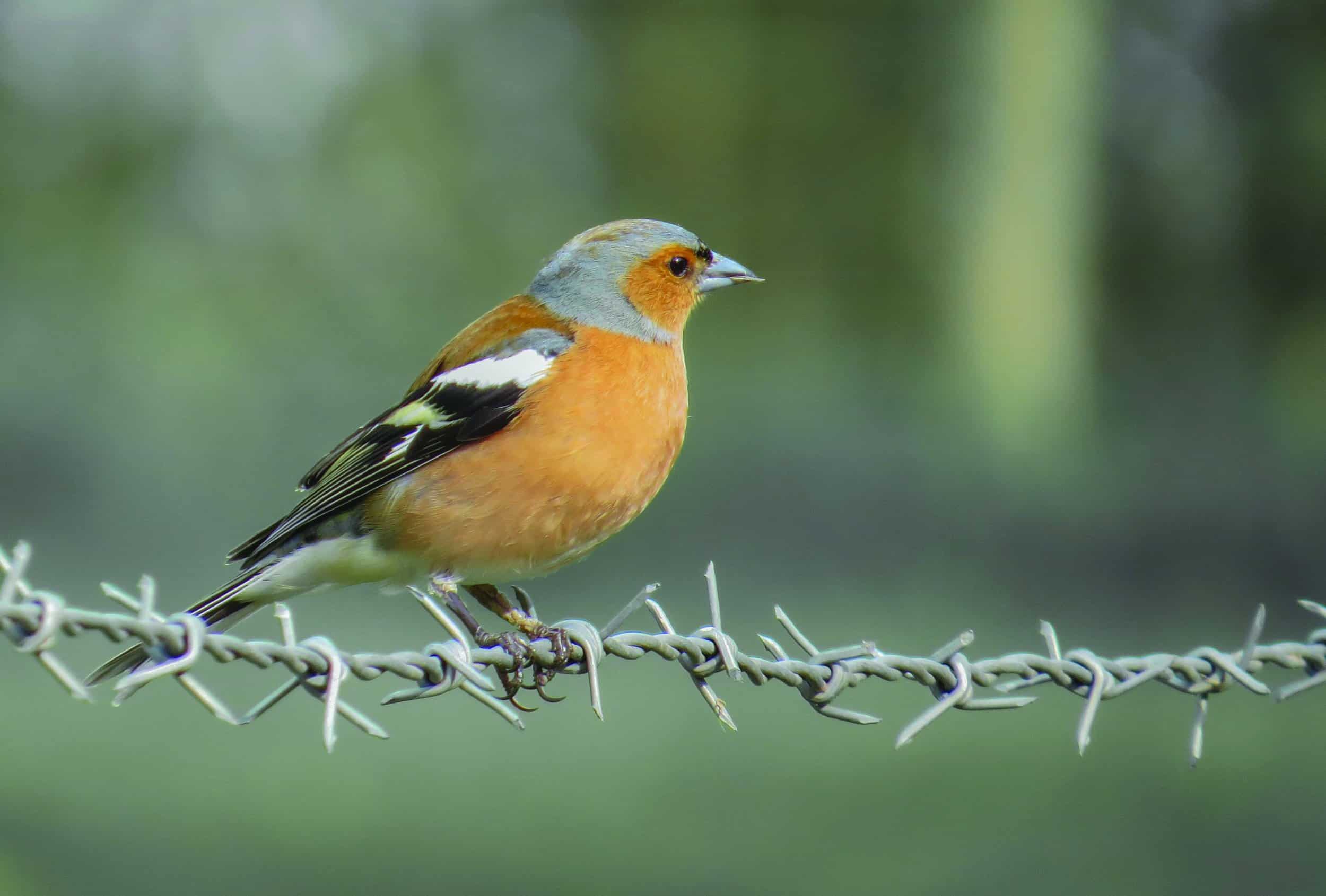
Read More
For many of us living in towns and cities, the easiest way to connect with nature is through observing our regular garden visitors. The course begins with an overview of basic bird biology and ecology, looking at how birds have evolved and the shared characteristics between all species. Later topics focus on identifying garden birds and exploring the use of bird song.
This is a 4-week online course covering 4 topics, for which you will complete a variety of self-led online resources and activities. Each topic is then concluded with an interactive Zoom workshop to complement the online content. Time commitment is approximately 2-3 hours a week and an E-certificate is provided upon completion.
By the end of the course, you will be able to:
- Describe the taxonomy, anatomy, and morphology of birds.
- Explain general bird ecology e.g., life cycle, diet, habitats and niches.
- Describe and identify common UK garden birds.
- Explain why birds sing and describe differences between bird song.
- Share this knowledge with friends, family, and fellow volunteers.
Who Should Attend? – Nature enthusiasts, Students, Rangers, Early career ecologists.
Knowledge Level – Beginner. Level descriptors can be found on the following webpage: Framework and Course Level Descriptors
Prior Knowledge – Existing knowledge and understanding of bird terminology would be beneficial for this course.
Please note that bookings will close 2 working days before the course start date to allow for all participants to be enrolled to the online platform – bookings will not be taken after this time. Bookings will close sooner if course capacity is reached
Understand how our online courses are delivered .
Live Webinar Information
There are 4 webinars for this course, taking place at the end of each week. Please see the date listing below for the day and time.
Please note – webinars will be recorded and uploaded to the virtual learning platform for learners unable to attend.
About the Tutor
Sandy Hill
Sandy worked for the Field Studies Council for over a decade, teaching at 9 centres in England and Wales. Having recently retired, he’s now exploring more of Pembrokeshire as a keen birder and enthusiastic natural historian. However, he is happiest when able to share his knowledge and love of the environment.
Example Timetable
Week 1: Bird Biology
Self-study material available at course start date
Week 1 live webinar
Week 2: Bird Ecology
Self-study material available: after week 1 webinar
Week 2 live webinar at end of week 2
Week 3: UK Garden Birds
Self-study material available after week 2 webinar
Week 3 live webinar at end of week 3
Week 4: Types of Bird Song
Self-study material available after week 3 webinar
Week 4 live webinar at end of week 4
Time commitment: This course will require approximately 2-3 hours of your time each week. This includes covering course materials on our Moodle learning platform and the zoom session.
What's Included
The course has been carefully created to help you continue to build on your knowledge as the course progresses. With content crafted to the online Moodle Platform and bespoke to the Field Studies Council.
The course includes:
- 45-minute interactive Zoom workshops to connect with the tutor and other participants.
- Expert tuition for which the Field Studies Council is renowned.
- Exercises to work on independently in advance of each Zoom workshop.
- Tailored course certificate upon completion
Once registered, you will follow well-illustrated, user friendly ’books’ to pick up knowledge. Quizzes and skill-checks will give you instant feedback on your learning. Forums give students the chance to interact with each other as well as a place to share work.
Bursaries and Subsidies
Student Discount
This course is eligible for a student discount. If you are a current student, please use discount code BioStudent20 at checkout for 20% off all Biodiversity courses.
Before You Attend
Accessing Your Course
Once you sign up you’ll receive an email at least 24 hours in advance of the course opening with details of how to access our easy-to-use platform, Moodle.
Moodle can be accessed through a browser or an app.
Webinars are via Zoom so you won’t need any new software to attend.
Recommended Devices
It is recommended that you access your course through a PC or laptop. Please be aware that there will be reduced functionality if you decide to access the course through a tablet or smartphone. The Field Studies Council is unable to email content directly to you.
Opportunities to attend this course
-
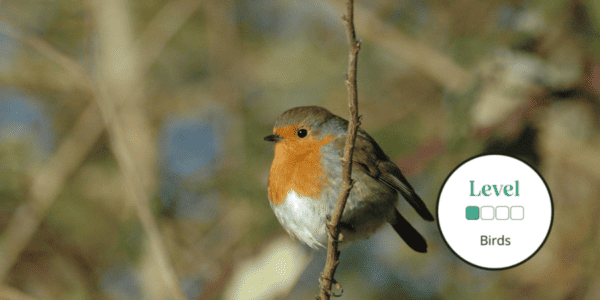
Tue 23, July 2024 - Tue 03, September 2024
The webinars will take place on Tuesdays 5:30 pm - 6:15 pm on the following dates:
- Week 1: 30th July 2024
- Week 2: 6th August 2024
- Week 3: 13th August 2024
- Week 4: 20th August 2024
No current dates for this course? Click here to view all the upcoming Natural History courses.
Progress Your Learning
This is a training course from the Field Studies Council, delivered by expert tutors with an approachable learning style. After attending this course, you may like to progress your learning with further relevant courses or branch out into other areas of natural history. The Field Studies Council offers both online and in person courses, so you can choose the learning style that suits you best.
The course gives you the opportunity to immerse yourself in a new subject and acquire novel skills. Our online portal gives you time to study at your own pace and fit the lessons around your own schedule.
If you have any questions about our online courses please check our Frequently Asked Questions
Please email [email protected] if you have any questions.
Group Bookings Made Easy
If you have a group of 10 or more individuals wanting to complete one of our courses, our team are available to discuss your options – from discounts to private team courses. Find out more!
You can rest assured that the absolute best content from an expert in environmental education will be at your fingertips. In choosing a Field Studies Council course, you will be joining thousands of people who learn with us each year.

